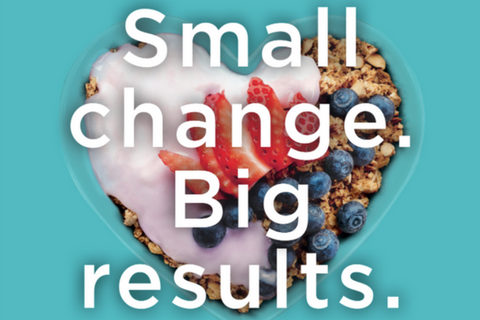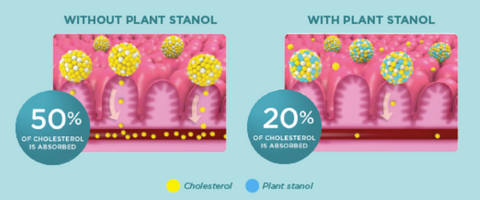Currently 2.3 million people in the UK are living with heart disease, at an annual cost of £953m to the NHS. We’re involved in an on-going battle to try to reduce it.
For those in the health industry, the link between high cholesterol and heart disease is well known. Meta-analyses, genetic studies and randomised controlled trials totalling more than 2 million participants, 20 million person-years of follow up and 150,000 cardiovascular events demonstrate a close correlation between cardiovascular disease (CVD) and high levels of low-density lipoprotein cholesterol (LDL-C).
What’s less known is the impact plant stanol esters can have on lowering cholesterol.
Changing behaviours of those at risk of heart disease
GPs and practice nurses are key influencers when it comes to persuading people to change their lifestyle to improve their health. So it’s vital to make sure these healthcare professionals (HCPs) have the facts – and materials – they need to support this.
In a survey we undertook this year of HCPs on behalf of Benecol, we found that persuading patients to improve their diet change is a key priority when it comes to reducing cholesterol – along with cutting smoking and increasing physical exercise.
We discovered that while the HCPs are well aware of the importance of cutting saturated fat and sugar, and want to communicate about healthier eating to patients, they are less likely to know the impact plant stanol esters can have on lowering cholesterol.
Plant stanols and sterols can reduce cholesterol by up to 10% in two to three weeks.
Over 70 clinical studies have demonstrated that plant stanols effectively lower cholesterol.
How do they work?
Consumption of foods with added plant stanols or sterols (1.5 – 2.4g/day) should take place at meal times. Mixing with food and digestive juices results in the displacement of dietary and biliary cholesterol in the fat absorption pathways in the gut.
Cholesterol absorption is reduced by about 50% and studies have shown a dose-dependent reduction in circulating LDL-C of 7 – 10% on average.
Cholesterol begins to lower immediately. With continued use full reduction is achieved within 2 – 3 weeks and is sustained over the longer term. What’s more, if used alongside statin therapy, plant stanols lower LDL-C by an additional 10% – an effect greater than doubling the statin dose, which, at best, only provides a 6% additional LDL-C reduction.
Plant stanols provide an easy diet-based solution to all hypercholesterolaemic patients, including those with mildly elevated serum cholesterol level. They would also be especially recommended for those averse to taking statins, anxious to keep statin doses low, or at higher risk from potential statin-related side effects.
They are recommended by a number of prevention and treatment guidelines as part of a cholesterol-lowering diet, including the European Society of Cardiology, the Atherosclerosis Society, UK JBS3 guidelines and the World Health Organisation.
Our holistic communications approach to help reduce cholesterol
As a result of our research, we created a holistic communications approach in association with HEART UK – the Cholesterol Charity and leading heart health dietary specialists – to support practice nurses and GPs, and their patients.
- We created information sheets for the healthcare professionals with full information about dietary changes patients can make to lower LDL-C levels. Included in this was the latest evidence not only on plant stanols but on all dietary recommendations for lowering LDL-C.
- Alongside this were fact sheets for patients, clearly explaining the problem of high cholesterol and the lifestyle changes that would have a significant impact on their health.
We highlighted the key motivators for patients – the fact that a small change would bring quick results.
Companies are accused of only being interested in their profits – and of course, they are ultimately accountable to stakeholders, so money is always going to come into it.
But what we found with Benecol’s approach is that they are genuinely determined to help combat the huge problem of heart disease that exists. Reaching out to health professionals they wanted to understand issues fully and how best to communicate lifestyle change – not just dietary, which would help promote the message of plant stanols, but also more widely, include all dietary matters as well as smoking and exercise.
The materials tell the whole story, educating the professionals and patients and then leaving it in their hands how to act.
Health professionals responsible for communicating heart health cholesterol lowering advice can order these packs by calling the Benecol Helpline 0800 018 4010 and asking for your health professional Benecol Toolkit ‘Small Change, Big Results’ pack.


